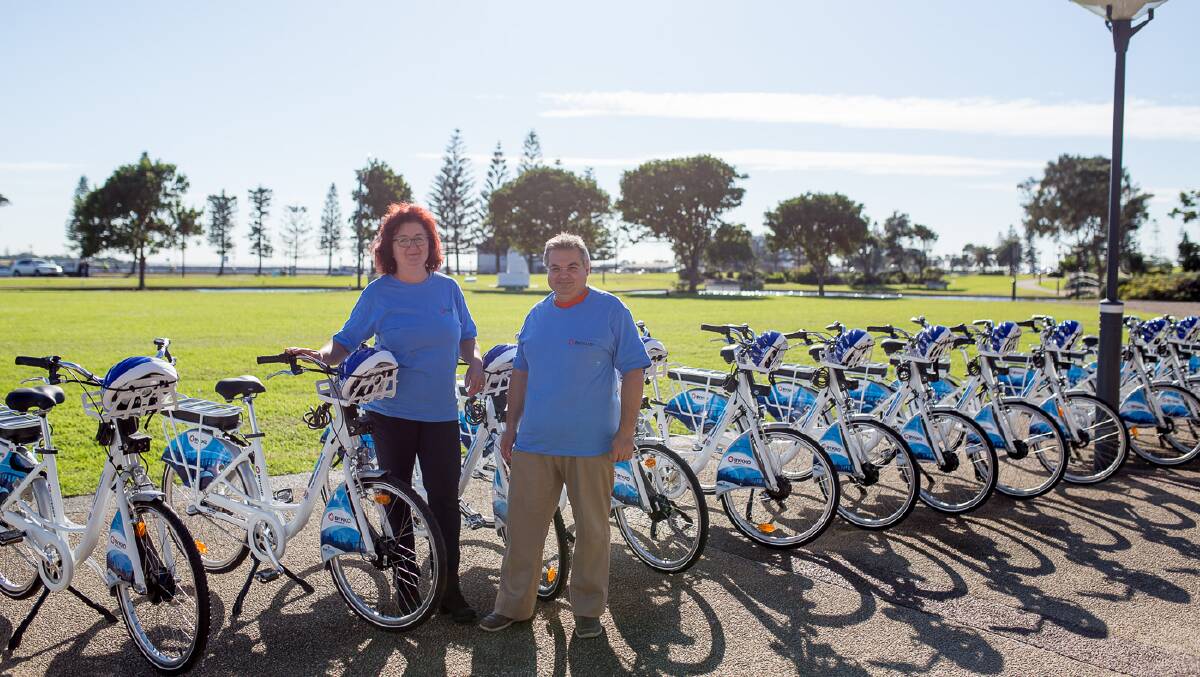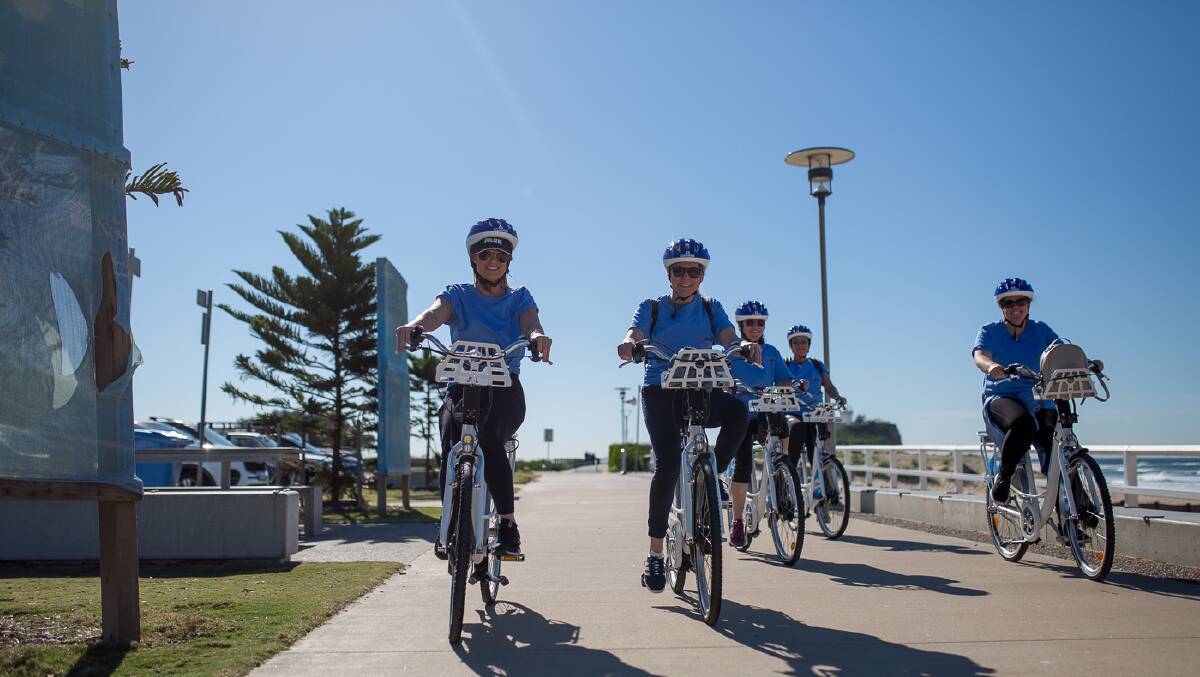Imagine negotiating the hills of Katoomba on a electric hire bike.
Create a free account to read this article
$0/
(min cost $0)
or signup to continue reading

That's the plan being proposed by Bykko managing director Monica Zarafu who says Katoomba could "easily become a five minute city on an e-bike" as early as this spring.
It will all soon become a reality after Blue Mountains City Council voted unanimously to establish a 12-month trial for the electric bike share system.
At the March 29 council meeting, councillors agreed to enter a licence agreement with Sydney-based company Bykko. The move followed an unsolicited approach by the hire bike company in late 2020.
The proposal will see the town centre, Echo Point precinct and Scenic World connected by a fleet of 36 electric bikes and six docking stations with eight docks each.
Six locations have been chosen including Katoomba Civic Centre, the corner of Lurline Street and Waratah Street, two locations at Echo Point, Lilianfels Park and Scenic World. (Bykko is engaging with Scenic World separate to council under a private agreement).
Ms Zarafu, a transport engineer, said they "always take a hyper-local, collaborative approach with cities when selecting our sites".
"Cycling is a sustainable transport choice that protects the natural and heritage values of Katoomba's extraordinary places. Blue Mountains has extensive cycleway and shared pathway infrastructure and local businesses are in a unique position to capitalise on this value-added offering. Katoomba could easily become a five minute city on an e-bike."

In a report supporting the idea, council was told "sustainable tourism is gaining momentum and developing bicycle tourism, as a sustainable tourism initiative, can have significant benefits for the local economy, council and the environment".
"Cycling tourism is a fast-growing industry overseas as well as in Australia and the e-bike share system will be a healthy, different and relaxing way for visitors to explore Katoomba.
"The trial aims to offer an alternative mode of transport that is environmentally sustainable, encourage the use of active transport and offer a different experience for visitors and residents."
Customers would use an app to register, book or subscribe and access a pedal assisted bike with a rechargeable electric motor allowing bike and rider to work together to travel at speeds of up to 25km/h. The electric assistance can be adjusted to suit the rider and discontinues when they stop pedalling or use the brakes.
The company has had a pilot operating in parts of Newcastle since 2018, where there are 19 docking stations and 100 e-bikes across the city. It also has stations in Canberra, Sydney, Perth, Port Macquarie, Sunshine Coast, Cottesloe and new amenities for residential developments, holiday parks and resorts.
Ms Zarafu said the Blue Mountains would benefit from newer bikes using carbon belts instead of chains, safety sensors with real-time GPS location, riding history, battery/motor health and motion monitoring for total fleet control. They would also have wireless charging pads which means no cables, no brackets, no parts that can rust or be easily vandalised. Maintenance teams will check the bikes twice weekly. She said there were multiple benefits for business and tourism.
The Newcastle Herald reports that the bikes can be hired at a pay-as-you-go price of $2 for every 10 minutes of use or for $10 per day. A monthly membership fee of $40 is also available and allows unlimited use at up to 60 minutes per ride. In its first months the system recorded 6000 trips, with 90 per cent of the take-up from Hunter residents. The Herald reported earlier this month that tourists had begun to form the lion's share of users on the bike network. The program has since been extended to 2022.
Ms Zarafu said Blue Mountains riders can hire the electric bikes by scanning the QR code at each bike. Once the bike is unlocked from the dock, its lights and power assist function will turn on automatically.
"All they need to do is start pedaling to engage the motor. The battery range is up to 70 km depending on the level of usage. The battery is recharged every time the bike is docked back at the docking station. The LCD display on the handlebar will display the remaining distance so the user can plan the return trip. However, if the battery goes flat, the bike can be used as a normal push bike. The e-bikes must be returned and docked at one of the stations from the network."
Bykko will install, service and maintain the fleet of bikes, helmets and docking stations, and be responsible for retrieving lost or abandoned bikes as well as public liability insurance. Council will provide the sites and a power connection. The one-off power connection cost for council will be $1200 per site. Bykko systems requires people to return the tech-embedded bikes to their dock.
"Cycle tourism has been identified globally as a key growth adventure tourism activity due to its low-impact, high-spend, and high-dispersal nature," she said.
Council hopes it helps encourage people to stay longer in the area with a slower form of transport and that the trial will have multiple health benefits for users.
She said the Newcastle program has saved 54 tonnes of CO2 emissions.
The Mountains trial fits in with the Blue Mountains Integrated Transport Strategic Plan 2035 and other state government transport plans.


